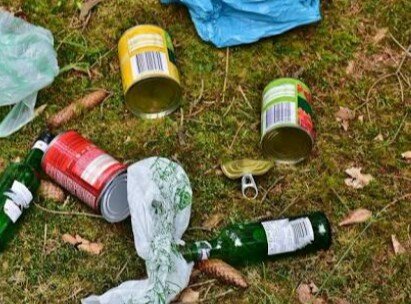I know that my title probably implies that the earth needs saving, well yes it does. You will agree with me that the killings and the level of terrorism and the rate ar which terminal diseases spring up is a sign that the earth really needs to be saved. However in this post, I want to elaborate more on pollution and how it is gradually depleting the earth.
Pollution
According to findings in the U.K, Pollution is one of the major causes of asthma, which affects a whopping 1.1 million children in the U.K. Pollution not only affects the U.K, it is everywhere.
Pollution is the introduction of substances to the environment, up to a level where it becomes harmful.
It is very common in our society today, because we are fond of leaving harmful residues or wastes everywhere. The sad news however is that the level of pollution is rising and it is breeding more diseases, yet we have not done anything close to eradicating it.
Types of pollution
Air, water and land pollution are three types of pollution of the environment which affects biotic and abiotic components, thereby causing poisoning, resistance to drugs and worse still death.
Air pollution
Major pollutants involved in air pollution include hydroxarbon, carbonmonoxide, and trioxosulphate which are usually released into the atmosphere from vehicle fumes or burning of fossil fuels.
Water pollution
Water pollution sources include, sewage, agricultural pollutants e.g pesticides and fertilizers, heavy metals and detergents. This pollutants cause the death of aquatic life and this of course affects man.
Land pollution
The major pollutants on land are also fertilizers and pesticides used on agricultural fields which usually finds it way into animals in the food chain.
A food chain, is a feeding order in which organisms in an ecosystem are grouped into nutritional levels and are shown in a succession to represent the flow of food energy and the feeding relationships between them.source
Also oil spillage during exploration can become accumulated in the soil, this finds its way into food too.
Nature responds....
Once there is an alteration in the biological or chemical balance of the ecosystem, nature reponds. We all pay the price whenever nature responds. Some consequences we face includes :
- Floods
- Desert encroachment
- Heat stroke
- biodiversity and extinction of some animals
- Disease outbreak
What can we do to help?
- First everyone has to make it a ooint of duty to keep the environment clean and pollution free. Especially manufacturing industries, asides from regulations binding on these companies, the consciousness of the fact that industrial activities affect the society and eco system should be evident in every worker. This helps to create an awareness and constant realization that care needs to be taken to avoid constant pollution of the environment.
- For instance the cement industry use a significant amount of Carbondioxide gas which liberates oxides of Nitrogen , mercury and cadmium into the atmosphere. These have serious effects in global warming.
- Removal of trees should be stopped too..I remember an animation movie I watched where a certain selfish business owner, wanted to keep selling artificial air so he did all he could to prevent planting of trees.
- Improper refuse disposal should be stopped. We must stop dumping our refuse or wastes carelessly or inside rivers, this is serious pollution. Recycling is the answer.
A friend of mine in Lagos Nigeria, returns every plastic he uses to the company for recycling , some companies even pay for this.
Practice the 3 Rs - Reduce, Reuse and Recycle.
You can also spread the message, just like I have done.


Horticultural Guerrilla Warfare!! Plant 1000 seeds a year in the countryside. Or wherever you go. At least it will make you feel better... make you feel less helpless as we all watch our world being slowly & deliberately destroyed by satanic controlled governments worldwide.
Sounds like a great idea...
I strongly believe that what would drive a culture of conservationism and green conscience would be two main points:
The first one goes with the principle of gain (if they gain something, they are more likely to do it), and the second with relevance (if their children are dying due corporations mishandling their operation residues, then it puts some pressure on their shoulders).
I'm a software developer, and I've also been thinking about how I could tackle the problem with what I know... But perhaps, no matter what tools I can come up with to coordinate the efforts, the most important part would be a thriving group of people willing to participate and make a change.